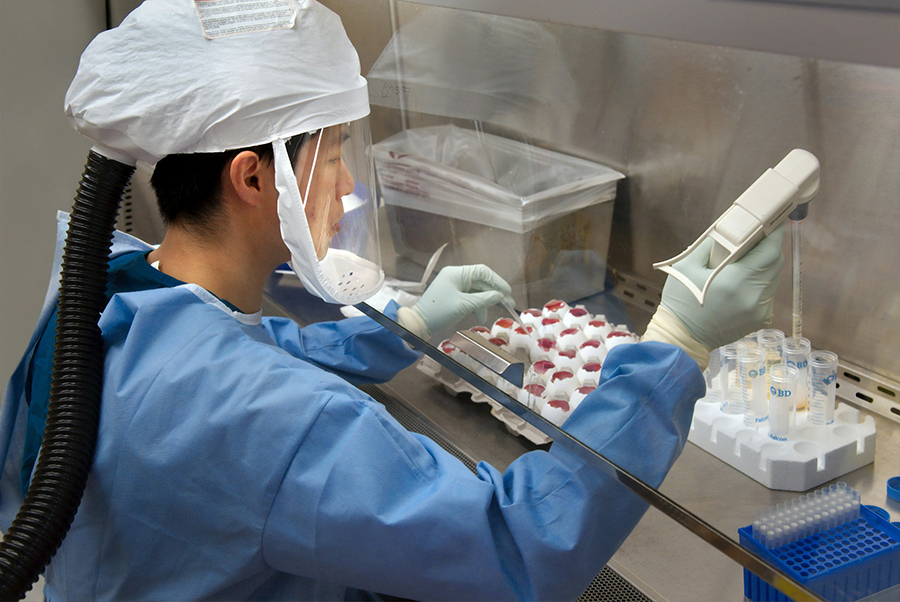Editor’s Note: On Wednesday, May 1, 2024, the California Supreme Court said it will consider Gilead’s request for summary dismissal, agreeing with BIO’s March 12 amicus brief, described below. Gilead has 30 days to file a new brief. The plaintiffs will have an additional 30 days to respond. Read more in Good Day BIO.
Arguing that drugmakers need to be able to make their own product development decisions, the Biotechnology Innovation Organization (BIO) recently filed an amicus brief opposing a lawsuit contending that Gilead should have developed a new treatment more quickly.
The plaintiffs make the unusual argument that—even though drugs using tenofovir disoproxil fumarate (TDF) are safe and effective—because the antiviral tenofovir alafenamide fumarate (TAF) has fewer side effects, Gilead should be held liable for not getting TAF to market sooner.
“Without sensible protections from such an irrational liability framework, innovation will be negatively impacted and patients in need of advancing treatments will suffer,” the brief argues.
BIO and its co-amici note that an earlier decision to let the case continue “fails to appreciate the uncertain nature of the drug development process and how companies need to make decisions with imperfect information. Manufacturers should not be punished if it turns out with hindsight that the company could have pursued a different development path.”
The case and its history
More than 20 years ago, drugmaker Gilead was investigating a drug called tenofovir to create an antiretroviral for people with HIV/AIDS. Initial research included development of two types of treatment involving tenofovir, TDF and TAF. The first medicine was developed with TDF and was approved by the FDA in 2001. TDF-based medications, of which there were several, went on to change the HIV landscape and become the standard of care. These medicines remain approved by the FDA today, and there is no dispute they have treated and prevented HIV in millions of people.
In 2004, with one TDF medicine approved and another poised to enter the market, Gilead made the decision to discontinue development of the second treatment, TAF. The company explains that the data at that time did not show TAF was sufficiently different from TDF in terms of effectiveness, safety, and tolerability. Gilead notes that it focused instead on developing TDF in combination with other medicines, creating single-pill treatment options containing TDF. The single-tablet regimens incorporating TDF were praised by the FDA as a “watershed in HIV treatment,” because it reduced the pill burden on patients, increasing patient adherence and avoiding viral resistance to the treatments.
In 2010, Gilead restarted TAF research, and the newer drug was approved by 2015.
A class of plaintiffs treated with TDF subsequently argued that they could have avoided bone and kidney damage (risks that were and are disclosed on the FDA-approved label) if TAF had been made available to them sooner. Despite the potential side effects, plaintiffs acknowledge that TDF is deemed safe by the FDA, remains on the market, and is helping many patients.
Gilead argued in response that there can be no liability for negligence when a product is non-defective. Unfortunately, this argument was rejected by the trial court, as well as on appeal. The company has now filed a petition asserting that the issue is of such importance to California patients and the state’s life sciences industry that review by the state Supreme Court is warranted.
BIO’s amicus brief
BIO supports Gilead’s position and has also urged the California Supreme Court to take up the case. Along with other innovation-focused life sciences organizations—including PhRMA, AdvaMed, and the California Life Science Association—BIO filed an amicus brief warning the court of the potential consequences if a legal rule that second guesses the pace of scientific progress, at pains of monetary damages, is allowed to stand.
As BIO’s brief points out, the innovator companies that drive drug development operate in an uncertain environment and must routinely make decisions about which products to pursue while the full scientific picture remains unclear. Laboratory testing and animal studies must take place prior to any work with humans. Companies must then work with FDA to assess the pre-clinical results and to develop a plan for further testing. This is followed by three increasingly rigorous phases of clinical trials. Each of these steps poses a significant risk of setback or failure, with the net result that, on average, it takes 10-15 years and $2.6 billion to bring a drug to market.
Adding a liability framework rigged against manufacturers to this already formidable list of drug development challenges is simply untenable. As BIO’s brief explains, later scientific breakthroughs do not discredit earlier work. Rather, they are evidence that the scientific process is working, with prior discoveries serving as the foundation for continuous refinement and improvement. Allowing the Court of Appeals decision to stand—thereby transforming each improvement into a further basis for liability—would disincentivize research at all levels, leading to fewer and poorer quality cures for patients.
The potential negative impact is magnified by the fact that, at least as articulated by the Court of Appeals, the framework does not appear to incorporate any limiting principle. “There are over 24,000 plaintiffs in the Tenofovir Cases,” notes John Delacourt, BIO’s Deputy General Counsel. “If this theory is allowed to stand, any company that improves or enhances a medicine will be at risk. Then the floodgates will really be open.”
A decision by the California Supreme Court on Gilead’s petition for review is expected by the end of May.
Editor’s Note: On Wednesday, May 1, 2024, the California Supreme Court said it will consider Gilead’s request for summary dismissal, agreeing with BIO’s March 12 amicus brief. Gilead has 30 days to file a new brief. The plaintiffs will have an additional 30 days to respond. Read more in Good Day BIO.




